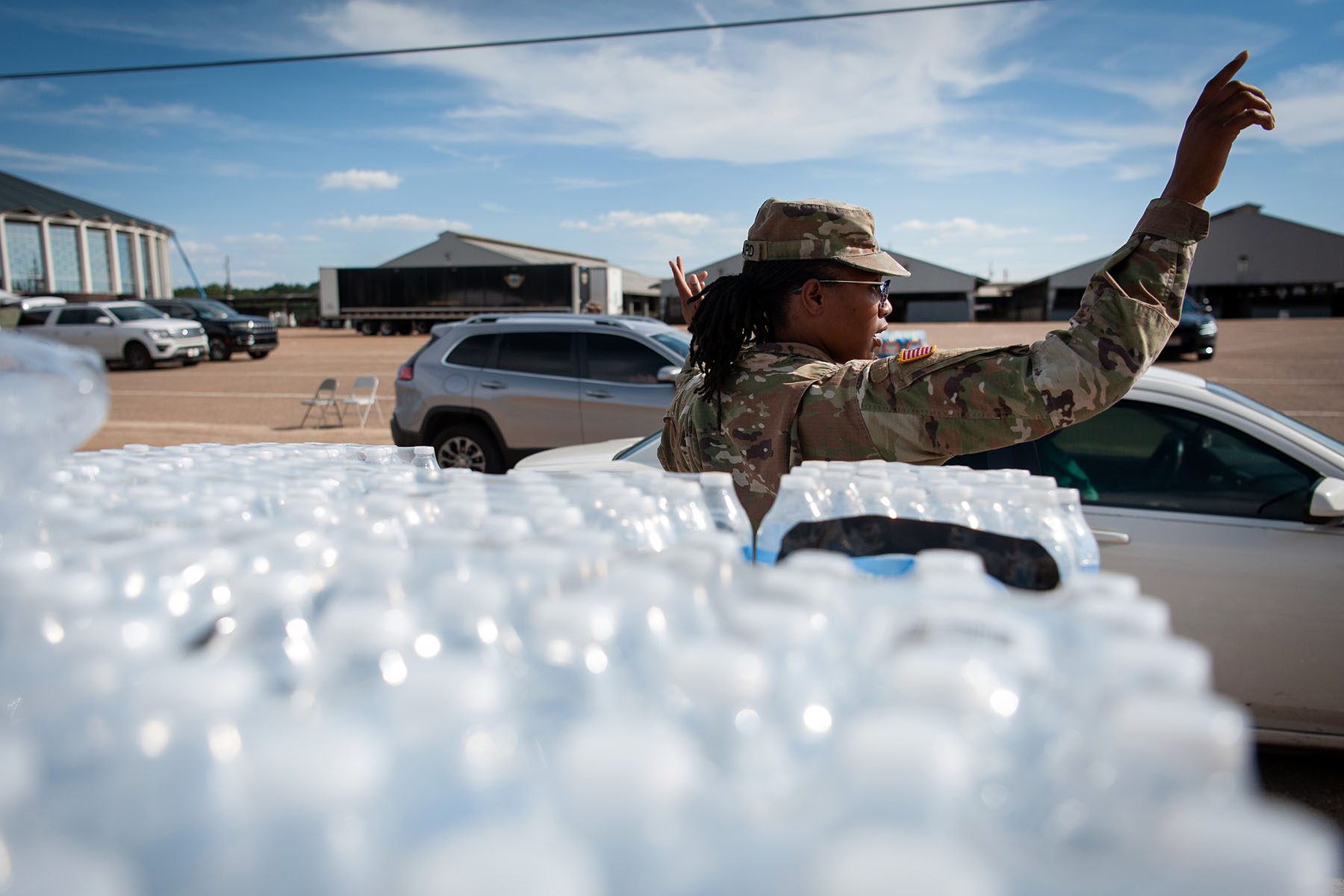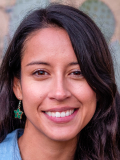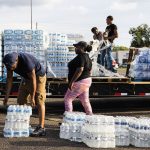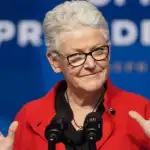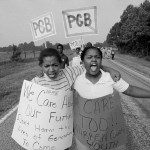We’re answering the “how” and “why” of environment & climate news. Subscribe to our daily newsletter.
Jackson, Mississippi, made national headlines last August when flooding severely damaged its water treatment facility, stopping the flow of water to the city’s 150,000 residents, the majority of whom are Black.
But prior to that breaking point, residents had suffered subpar water quality for years. Rosemary Enobakhare grew up under constant boil advisories. “I thought it was a normal thing,” she said.
Now, Enobakhare plays an important role in outreach to these very communities that the U.S. Environmental Protection Agency (EPA) is aiming to reach — those typically impacted by poor water and air quality. She is the associate administrator of public engagement and environmental education at the Environmental Protection Agency. Her offices are responsible for ensuring that the EPA is aligned and communicating with communities fighting environmental health-related risks.
In 2021, Enobakhare helped lead Administrator Michael Regan’s “Journey to Justice” tour which took the EPA through the southern U.S. to speak with grassroots leaders about environmental injustices they face and has met with residents and community activists across the country dealing with environmental harms in their own backyards.
Her life experiences have shaped how she views the work. “I don’t want young people or people in communities now to think that having an entire family with cancer because of some of the toxins they are breathing is the norm, because it’s not,” she said. “I want to make sure that we are prioritizing those communities, going to the hard places, having those conversations, and really shining a light on some of the issues.”
Now as the Biden administration and the EPA begins to roll out funding from the Inflation Reduction Act and Bipartisan Infrastructure Law, which will fund things like water infrastructure projects and clean school buses, Enobakhare and the agency as a whole will play a pivotal role alongside communities in centering environmental justice.
The 19th spoke with Enobakhare about her time at the EPA under two different administrations, the role environmental justice plays in the agency today, and why it’s important to have Black women leading these offices.
This interview has been edited for length and clarity.
Jessica Kutz: Can you tell me a little bit about how you ended up in this role? What was your background leading up to working at the Environmental Protection Agency?
Rosemary Enobakhare: I was previously at the agency under the Obama administration, I started as a special assistant and just kind of worked my way up to being the deputy associate administrator in this office, and then came back under this administration. I am an organizer by training. I worked on campaigns and worked in communities.
When people think about work at the Environmental Protection Agency, they think about people who are really steeped in the environment, but for me, when I think about this work, I think about people, I think about people who look like me, I think about people who have experienced the brunt of pollution. And that is the reason why I decided to take this job, because the EPA, for me, is a public health agency.
How has this role or this office changed under the Biden administration versus the Obama administration?
This go around, environmental justice has really been a focal point of the work. But, my office not only works with environmental justice groups, we work with industry, we work with businesses, we work with moms, we work with folks across the spectrum, because we are making sure that we bring everybody to the table to have a conversation and find some solutions that work for everyone.
Most grassroots organizing is being led by women of color. How have you been able to reach that demographic specifically?
One of the reasons why I stayed in this work was because under the Obama administration, when I started doing environmental work, I was oftentimes the only Black person, but also the only Black woman, in the room.
I was going across the country with then-administrator Gina McCarthy doing a lot of public engagement work. I was seeing how people were making decisions for my community that didn’t look like me. And so when I see there are other Black women doing the work organizing on the ground, people like Dr. Beverly Wright, people like Catherine Flowers and Peggy Shepard and many others who are doing this work, I am encouraged, and I collaborate with them, work with them and learn from them. That’s really important to me and it’s also really important for the administrator as well.
You helped coordinate Agency Administrator Michael Regan’s Journey for Justice tour, and are often out in the field talking with communities. How do you ensure community engagement and listening tours are accessible to women and LGBTQ+ people?
We work across the board with our communities. And we’re not just listening, but the administrator also follows up with some very concrete actionable items that really provide so much relief to those communities. For us, it’s important to center the community, the people who are living and breathing and experiencing the issues that are on the ground. And so we incorporate people from all walks of life — LGBTQ people, women, folks from a disability community, all of the above are all really important — and to make sure that their perspectives are a part of the conversation.
The administrator does a lot of work around women and girls. We’ve gone to various schools, because my job is also centered around environmental education, and he has given grants out to young girls who are doing some really phenomenal work in their community around the environment and environmental education.
Also, we work very closely with the faith community. We work with groups like the Evangelical Environmental Network, or Interfaith Power in Life or Green the Church. I’m really proud of Green the Church, because what they are doing is organizing
Black churches across the country, around energy efficiency, and how they can be involved in climate change and the environment. In the Black community, our churches are our pillars.
The EPA will be distributing funding from the Bipartisan Infrastructure Law, and plays a key role in enacting Justice40, the commitment by the Biden administration to funnel 40 percent of funding to historically disadvantaged populations. Are there ways in which your office is incorporating gender into how the EPA is distributing this funding?
We made sure that as we are talking about these various grant opportunities, we’re talking to groups that are from across the board. We’ve done listening sessions with folks like the National Council of Negro Women, and we’ve had conversations with folks from other women’s groups. We’re also talking to teachers and have a pretty close relationship with the American Federation of Teachers and the National Education Association, both labor unions.
We are also talking to the NAACP, LULAC and other groups in order to get the word out about the work that we’re doing around environmental justice and grant opportunities. We try to make sure that we’re not talking to the typical folks who have access to the agency. We have a significant amount of money that we want to make sure that we’re getting out into the communities across the country.
